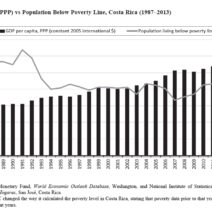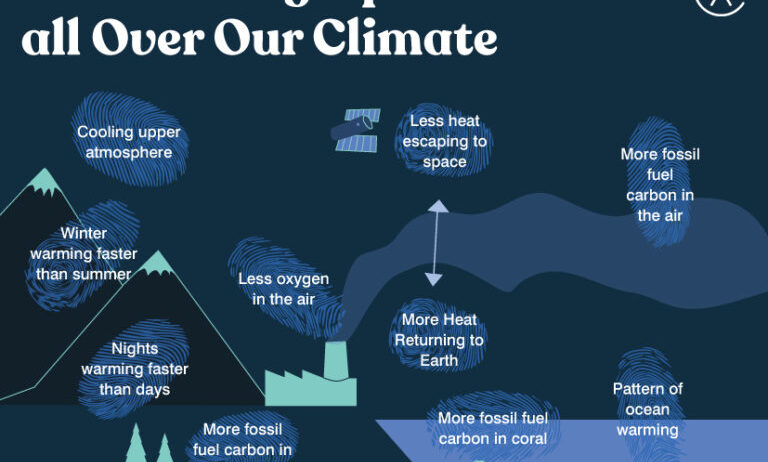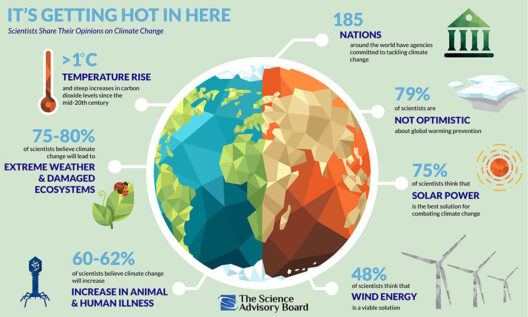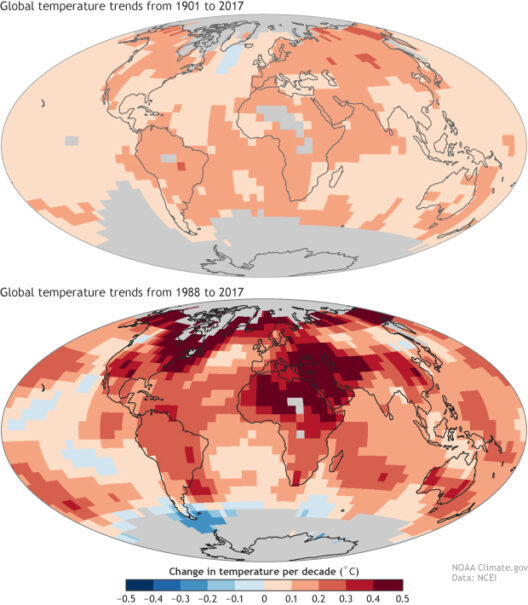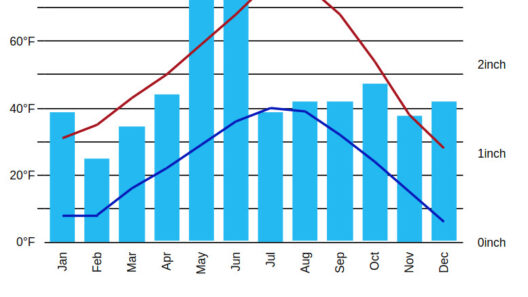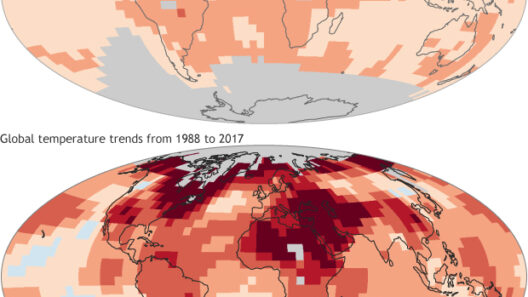The assertion that climate change is a mere phantasm, a figment of exaggerated scientific imagination, is as misleading as claiming the sun is merely a painting in the sky. Beneath the surface of such denial lies a complex tapestry of truths, fabric woven from intertwining realities that impact every living organism on the planet. The urgency of addressing these misconceptions cannot be overstated, for they misguide public perception and hinder proactive efforts towards mitigation and adaptation. Thus, we embark on a journey to debunk the most pervasive myths surrounding climate change, bringing to light the facts that illuminate the shadows of ignorance.
One of the most prevalent fallacies is the notion that climate change is an inconsequential phenomenon, relegated to the unfounded fears of environmentalists. This myth embodies an ill-informed belief that fluctuating temperatures are a natural cycle. However, the empirical evidence overwhelmingly supports the reality of anthropogenic climate change—an unprecedented alteration accelerated by human activity. Since the Industrial Revolution, the combustion of fossil fuels has significantly increased atmospheric concentrations of greenhouse gases, particularly carbon dioxide. The Intergovernmental Panel on Climate Change (IPCC) has reiterated, time and again, that the large-scale releases of these gases are directly linked to rising global temperatures. Thus, to dismiss climate change is to dismiss the scientific consensus—an act of profound folly.
Furthermore, the myth that climate change is a distant threat—to be addressed tomorrow rather than today—lacks both temporal and ethical grounding. Proponents of this belief often claim that the worst of climate impacts are decades away, and so, there is no immediacy to tackle this existential crisis. However, the reality is that the changes we witness today are alarmingly tangible: from unprecedented wildfires consuming vast swathes of land to catastrophic flooding displacing entire communities. The ramifications of climate change are not merely foreboding shadows on the horizon; they are frontal assaults on ecosystems and human civilizations alike. Ignoring this pressing crisis would be akin to looking away as a tidal wave approaches the shore.
Another pervasive myth is the belief that climate change is a hoax perpetuated by scientists and activists in a bid for power and financial gain. This narrative not only undermines the integrity of research but also vilifies those striving to protect the planet. Skeptics frequently point to inconsistencies in models or natural climate variations as proof of a grand conspiracy. However, this argument fails to recognize the meticulous methodologies employed in climate science. Researchers engage in scrutinizing data from specialized climate models and an extensive array of historical climate records, offering the most authoritative assessments possible. The scientific enterprise is inherently self-corrective; to label it a conspiracy is to entirely misinterpret the essence of scientific inquiry.
Additionally, there exists the erroneous notion that a solitary individual’s actions are inconsequential in the grand scheme of climate change. While it is easy to feel overwhelmed by the scale of the crisis, every action, no matter how minute, contributes to the larger narrative. The cumulative impact of individual choices—ranging from energy consumption to waste production—has a profound effect. Collectively, a society of conscious individuals can drive significant change. This myth perpetuates apathy and despair, thereby undermining collective efforts that have the potential to catalyze transformational shifts in policy and practices.
One of the more insidious myths alleges that addressing climate change will result in economic ruin. Although adjusting industrial practices and transitioning to renewable energy involves upfront investments, such efforts ultimately yield long-term economic benefits. The renewable energy sector has burgeoned, creating millions of jobs globally. The transition not only curtails dependency on fossil fuels but also fosters innovation in sustainable technologies, thereby driving economic resilience. It is imperative to recognize that addressing climate change is not merely an environmental effort; it is a comprehensive economic strategy that preserves and enhances livelihoods.
Moreover, the idea that climate change solutions require drastic lifestyle alterations—akin to a dystopian regression—is a construct meant to foster resistance to change. This myth is rooted in a fundamental misunderstanding. Transitioning towards a sustainable future does not entail relinquishing comfort or convenience; rather, it involves innovating within our current paradigms to achieve greater efficiency and sustainability. Electric vehicles, sustainable agriculture, and energy-efficient buildings are embodiments of this transformative journey. They illustrate that the pursuit of sustainability can be seamlessly intertwined with modern conveniences. The dream of a green future is not merely an idealistic vision but a practical pathway to enduring prosperity.
In conclusion, confronting the myths that cloud the conversation on climate change is essential for fostering an informed public and driving meaningful action. These misconceptions not only perpetuate inertia but also create fissures in the collective resolve needed to combat this formidable challenge. The age of denial must be dispelled in favor of a commitment to embrace science, action, and resilience. Like a robust tree entrenched in rich soil, the awareness and acceptance of climate change must take root, allowing society to flourish amid the storms of uncertainty. Only through collective acknowledgment and endeavor will mankind unravel the challenges posed by climate change and navigate toward a sustainable future. It is time to shred the veil of myths and face the reality of climate change with clarity and resolve.
